Photographs: Reuters Onkar Singh in New Delhi
Union Finance Minister Pranab Mukherjee said on Tuesday that the Indian government had nothing to hide, but the names (of those who have stashed black money abroad) "cannot be revealed as it violates international law".
Addressing a press conference in New Delhi, while outlining the government's strategy to tackle the menace of black money and on the stashing of illicit wealth overseas, the finance minister said that that there are no reliable estimates of black money generated by Indians within and outside the country, but it is roughly estimated at being between Rs 500 billion and Rs 1,400 billion.
He said that the various estimates of black money are only unverifiable assumptions and approximations.
"No information can be made available from any other sovereign government unless there is a legal framework. We are not hiding behind the double taxation avoidance pacts," said the finance minister.
The finance minister dismissed the criticism that it was not disclosing information because such disclosure could result in the government's fall.
Asserting that the government was "not afraid of the danger to the coalition in not disclosing the names of black money holders abroad," Mukherjee asserted: "We will complete our full term."
Click NEXT to check out the government's 5-pronged strategy to tackle the menace!
Additional inputs: PTI
Black money: Can't reveal names, says finance minister
Photographs: Reuters
The finance minister outlined the government's plan to tackle the scourge of black money and the stashing away of illicit wealth abroad.
He said the government has formulated a five-pronged strategy. This includes:
1. Joining the global crusade against 'black money';
2. Creating an appropriate legislative framework;
3. Setting up institutions for dealing with illicit funds;
4. Developing systems for implementation; and
5. Imparting skills to the manpower for effective action.
Unfazed by attacks buy the Opposition parties and the questions from the Supreme Court, the government continued to maintain that the absence of legal framework keeps it from disclosing any information received from foreign entities on black money held by Indians abroad.
"The problem is information which we have obtained has come under some conditions of secrecy. Today, if we disclose, tomorrow other countries will not give me the information raising an accusing finger that you do not meet international commitments," he said.
Elaborating on his statements, the finance minister said that Swiss banks refuse to divulge information on black money. "We cannot break any international commitments on black money holders because governments will not be ready to part information with us," he added.
. . .
Black money: Can't reveal names, says finance minister
Photographs: Reuters
He also said that "no information can be made available unless there is legal framework and no sovereign country is going to share information on black money."
Swiss government has not shared information on black money with any government so far, Mukherjee said. The UBS Bank shared data with the US after entering an out of the court settlement under which no prosecution was pursued, he added.
However, Mukherjee said: "There is a way. As and when the Income Tax Authorities will be in a position to prosecute cases against tax evaders you will come to know."
"Even I have no intention or authority of knowing the names (of those who have stashed black money abroad). The Income Tax officers have statutory powers under which they perform their duties and they are outside the purview of the administrative control of the ministry," Mukherjee said.
Saying that India has amended the Double Taxation Avoidance Agreements (DTAA) with 23 countries, the finance minister added that this move "will enable us to seek banking information."
He also said that India is updating laws on transfer pricing mechanism to bring it at par with international standards as part of attempts to bring back the black money stashed abroad.
. . .
Black money: Can't reveal names, says finance minister
Photographs: Reuters
Mukherjee further added that India has started receiving information on Indians who have generated income outside the country under double taxation avoidance agreements.
Names of black money hoarders will be released after they are prosecuted, the finance minister said.
"It's necessary to find out the sources of black money so that its generation can be prevented, but if we start revealing the information, sovereign countries will accuse us of violating international norms," he said.
A multi-disciplinary committee has been appointed to estimate the amount the black money stashed by Indians in foreign banks, Mukherjee said.
The government has appointed a group to look into the possibility of amnesty scheme to bring out black money, he added.
There is a way to get information when Income Tax authorities decide to prosecute offenders, the finance minister said.
The finance minister said there were no reliable estimates of black money both inside and outside the country.
. . .
Black money: Can't reveal names, says finance minister
Photographs: Reuters
The interim recommendations of BJP Task Force 2009 have estimated the amount of black money to be between $500 billion to $1,400 billion, he said.
A recent study by Global Financial Integrity has estimated the present value of illicit money outflow to be $462 billion, he said.
"All these estimates are based on various unverifiable assumptions and approximations. The government has been seized of the matter and has constituted a multidisciplinary committee to get studies conducted to estimate the quantum of illicit fund generated by Indian citizens," Mukherjee said.
On whether the government would come out with an amnesty scheme to bring back unaccounted money abroad, he said a group has been constituted to look into such possibility.
He said India has also initiated process of negotiation with 65 countries to broaden the scope of article concerning Exchange of Information to specifically allow for exchange of banking information and information regarding taxpayers not covered by DTAA.
"Thirteen new DTAAs have also been finalised where the Exchange of Information Article is in line with the international standards," the minister said.
He said the government was strengthening the administrative machinery by setting up eight more income tax overseas units.
. . .
Black money: Can't reveal names, says finance minister
Image: Swiss banks don't disclose information, says FM.Photographs: Reuters
Two such units are operational in Singapore and Mauritius, Mukherjee said.
The government is also setting up an Exchange of Information (EoI) Cell, which will help in effective exchange of information to curb tax evasion, he said.
"We have detected undisclosed income of about Rs 15,000 crore (Rs 150 billion) in last 18 months, due to focused search operations by the Income Tax department," he said, adding that during the same period, Directorate of International Taxation has collected taxes of Rs 34,601 crore (Rs 346.01 billion).
"The Directorate of Transfer Pricing has detected mispricing of Rs 33,784 crore (Rs 337.84 billion), which has prevented shifting of an equivalent amount of money outside India," he said.
Information regarding details of payments received by Indian citizens in several countries has started also coming from treaty partners. This information is in different stages of processing and investigation, Mukherjee said.
The finance minister said necessary provisions have been made in the proposed Direct Tax Code to create legislative framework to check illicit outflows of funds.
Black money: Can't reveal names, says Pranab
Photographs: Uttam Ghosh/Rediff.com
India's membership in Financial Action Task Force in June last year, was in recognition of the strength of the country's anti-money laundering and anti-tax evasion measures.
India has also joined the Task Force on Financial Integrity and Economic Development in order to bring greater transparency and accountability in the financial system.
In June 2009, the Prevention of Money Laundering Act (PMLA) has been amended whereby the predicate offences listed in the Schedule to the Act were substantially increased in terms of the Acts covered and sections covered under such Acts, Mukherjee said.
He said this amendment has tremendously widened the scope of money laundering investigations by the Directorate.
Mukherjee said the early results of the government's initiatives were encouraging.
"These proactive steps led to additional collection of taxes of Rs 34,601 crore (Rs 346.01 billion) and detection of additional income of Rs 48,784 crore (Rs 487.84 billion) on which taxes are being collected. I am confident that the results will be quite satisfactory in the days to come," Mukherjee said.
According to the data provided by the Swiss bank, India has more black money than rest of the world combined.
The United Kingdom has $390 billion in black money, Russia has $470 billion and India tops the list with almost $1,500 billion, according to reports.

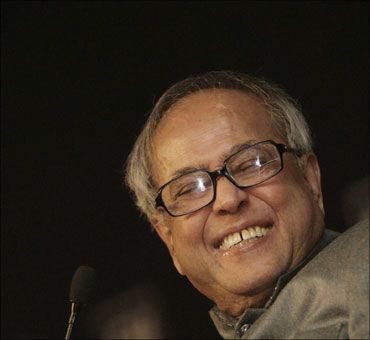
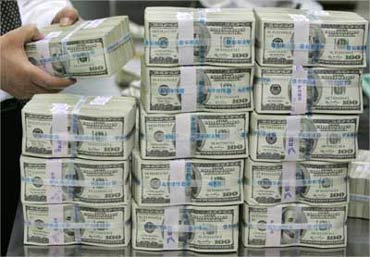
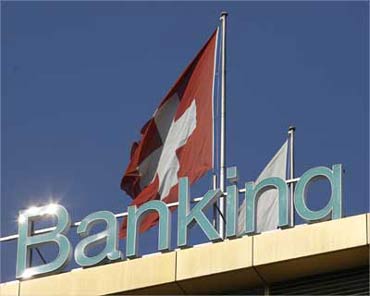
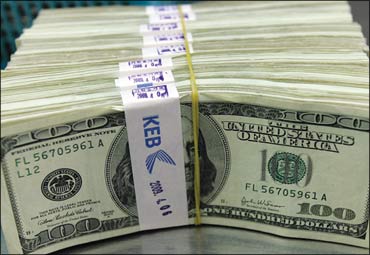

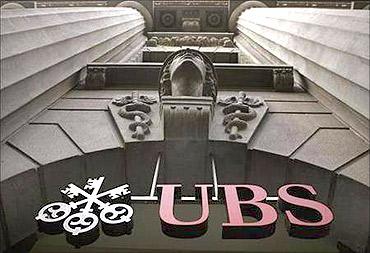

article